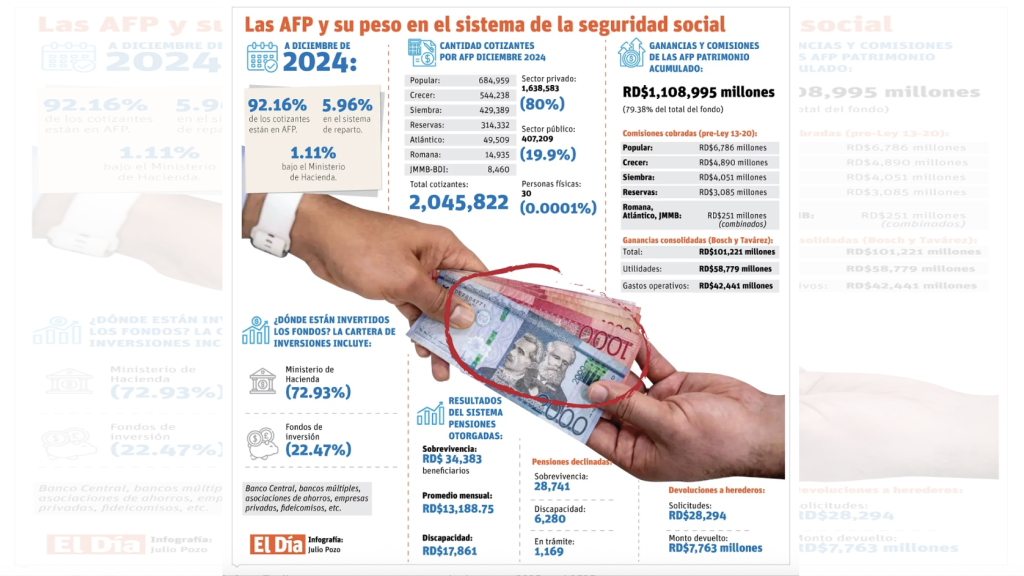
Dominican Republic’s private pension fund administrators (AFPs) are under fire for generating RD$8.7 billion annually in commissions while retirees face low pension payouts. As of May 2025, the accumulated individual capitalization accounts reached over RD$1.16 trillion. AFPs charge a 0.75% annual commission on this balance, earning significant profits without assuming financial risk or guaranteeing returns, El Dia reports.
Critics argue that the system has become overly commercialized. Analysts Matías Bosch and Francisco Tavárez highlight that AFP profits increase during recessions due to expanded government credit demand for public spending.
Seven private AFPs dominate the market, holding 92.16% of pension contributors and 79.38% of pension fund assets (RD1.1trillion) as of December 2024. These AFPs have cumulatively received over RD19 billion in commissions. Total AFP profits, including operational expenses, are estimated at RD$101.2 billion.
Despite significant pension fund investments, primarily in the Ministry of Hacienda (72.93%), the system granted only 15,781 pensions by December 2024, rejecting 28,741 applications. The average survivor’s pension was RD$13,188.75.
Reasons cited for low pensions include:
• Reduction of the original contribution rate from 12% to 9.97%.
• Failure to issue recognition bonds for former IDSS (Dominican Social Security Institute) affiliates.
• Increased life expectancy, raising the cost per retiree.
• High administrative costs of AFPs due to lack of competition.
• High prevalence of informal labor, leading to contribution instability.
• Lack of a subsidized contributory regime for self-employed workers.
Experts like Antonio Ciriaco, Dean of the Faculty of Economic Sciences at UASD, and Arismendi Díaz, former general manager of the National Social Security Council, emphasize that the system’s goals have been distorted. They point to insufficient coverage for informal workers and the lack of implementation of crucial components like unemployment insurance and a subsidized contributory regime.
There’s also criticism regarding the ineffective regulation and supervision by the Superintendency of Health and Labor Risks (Sisalril) and the Superintendency of Pensions (Sipen), which has favored financial intermediaries.
A reform of Social Security Law 87-01 is urged to establish a multi-pillar system, as recommended by the International Labor Organization (ILO), where individual capitalization is a complementary and non-mandatory pillar, ensuring greater balance, equity, and real coverage.
Read more in Spanish:
El Dia
8 July 2025

